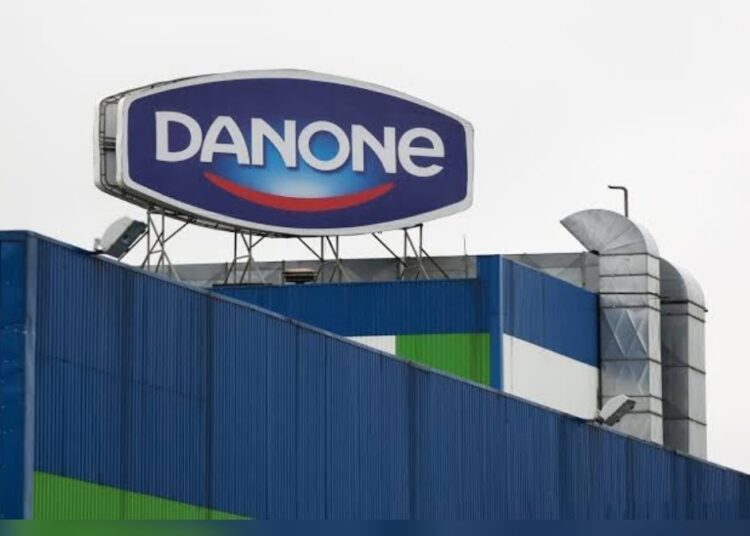Danone, one of the world’s biggest food and beverages companies is betting big on Africa’s most populous nation at a time many multinationals have taken the exit door on naira slump and sky-high inflation.
The Paris-headquartered company is making arrangements to double down its investment in Africa’s largest consumer market and expand its presence on recovery hopes that the nation’s economy has rebounded.
“We are convinced about the potential of Nigeria,” said Christian Stammkoetter, Danone’s head of Asia, Middle East, and Africa, who spoke with Semafor on the sidelines of the Africa CEO Forum in Abidjan.
Danone has long been operating in Nigeria, where it is best known for its Fan Milk brand, and recently invested in developing milk distribution capacity in the country’s north to help lower operational costs and boost margins.
But Stammkoetter assured that the firm will “continue doubling down through innovation and expansion of its routes to market.”
The French giant consumer goods firm expansion plans come on the heels of multinationals completely exiting or scaling down Nigerian operations on the back of dollar crunch and currency woes, the consequences of the painful but needed economic reforms powered by President Bola Tinubu nearly two years ago.
No sooner the policies came into top gear than at least nine multinationals announced their exits including pharmaceutical giant, GSK, personal and health care consumer firm Procter & Gamble, Unilever among others on challenging business environment and policy somersaults.
While they fled to more business-friendly economies, they still retained their local assets to tap the opportunities in the Nigerian market.
Procter & Gamble, once United States’ biggest non-oil investment in Nigeria, exited its $300 million manufacturing operations in Agbara, Ogun State, in 2017.
However, the assets are now used for imports, according to Andre Schulten, chief financial officer, P&G, who revealed this at the Morgan Stanley Global Consumer & Retail Conference in New York in December 2023.
The naira which tumbled more than 70 per cent since the currency was floated and allowed to be market-driven is gaining and stubbornly high inflation which rose to its highest in more than 27 years is equally moderating, reigniting business confidence.
For the first eight trading days of May 2025, the naira appreciated by N2.15, with the dollar quoted at N1,600.03 at the Nigerian Foreign Exchange Market (NFEM), representing a slight gain of 0.13 per cent compared to the N1,602.18 quoted at the beginning of the month, according to data from the CBN.
In the parallel market, commonly referred to as the black market, the naira has also traded within a relatively narrow range, hovering between N1,600 and N1,625 per dollar.
These improving macroeconomic indicators must have fuelled the appetite of the French consumer goods giants to scale up in key moves to tap into the demographic market of the nation.











